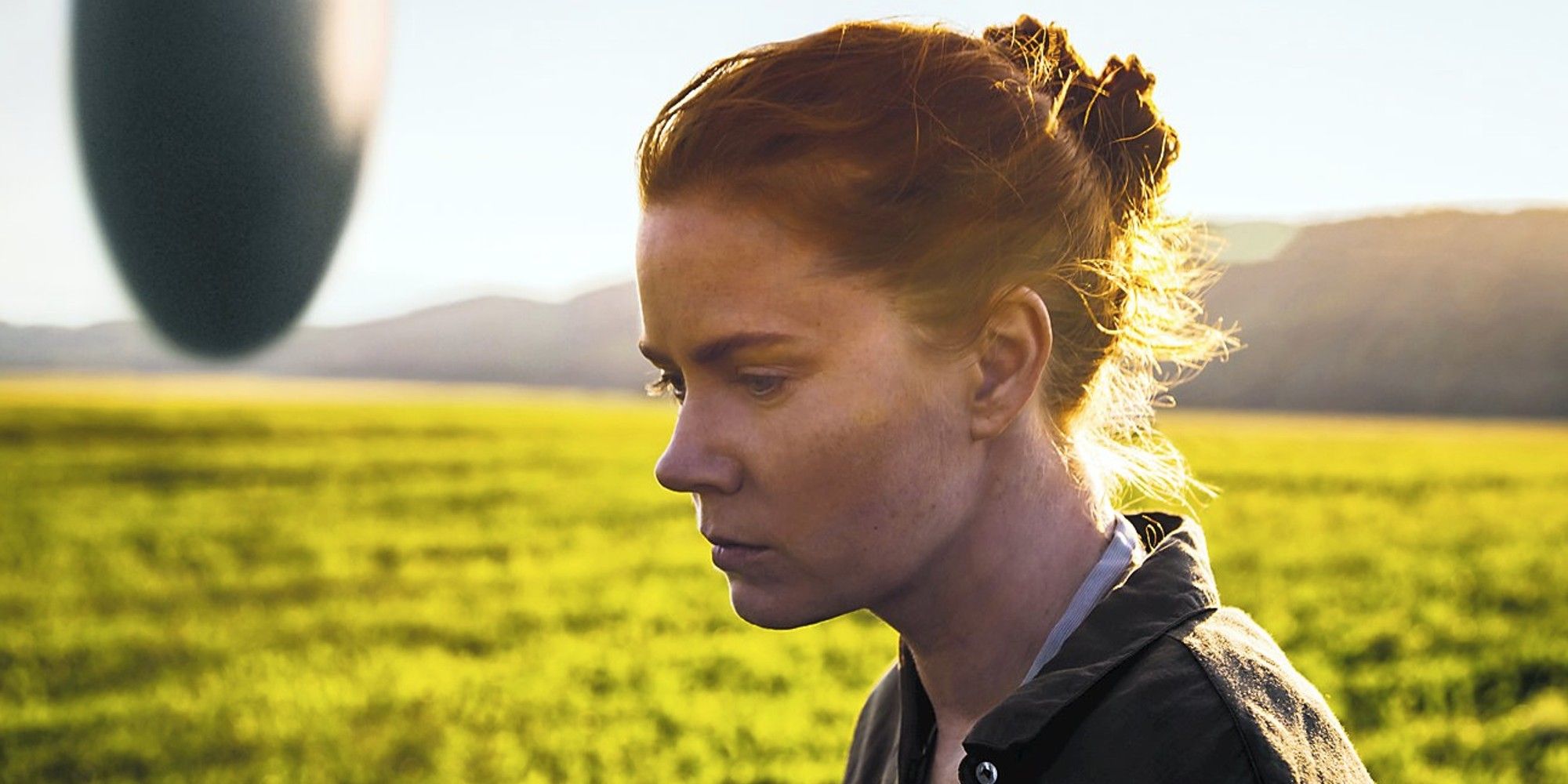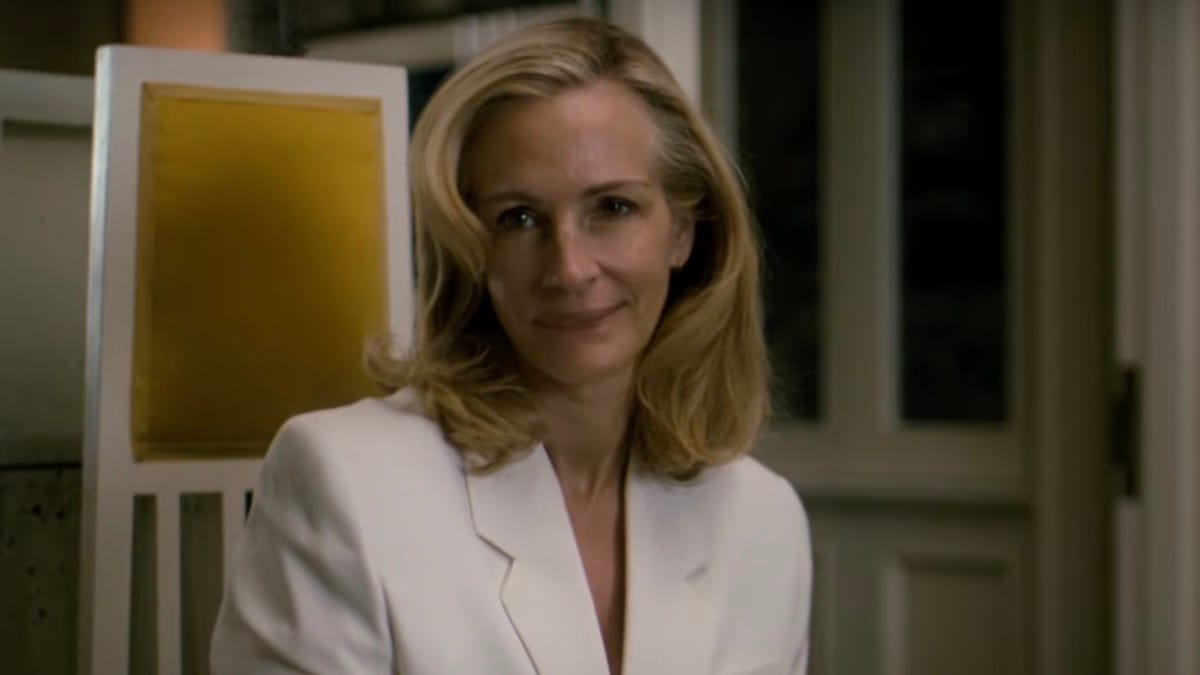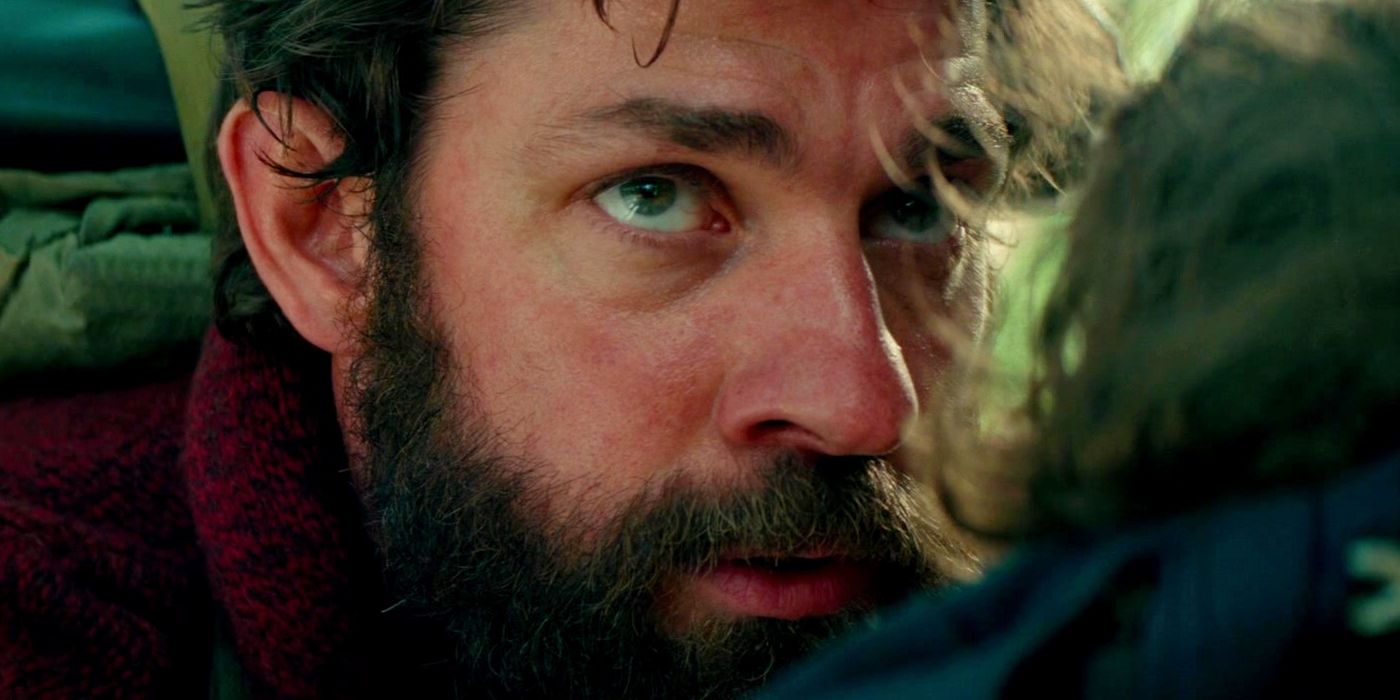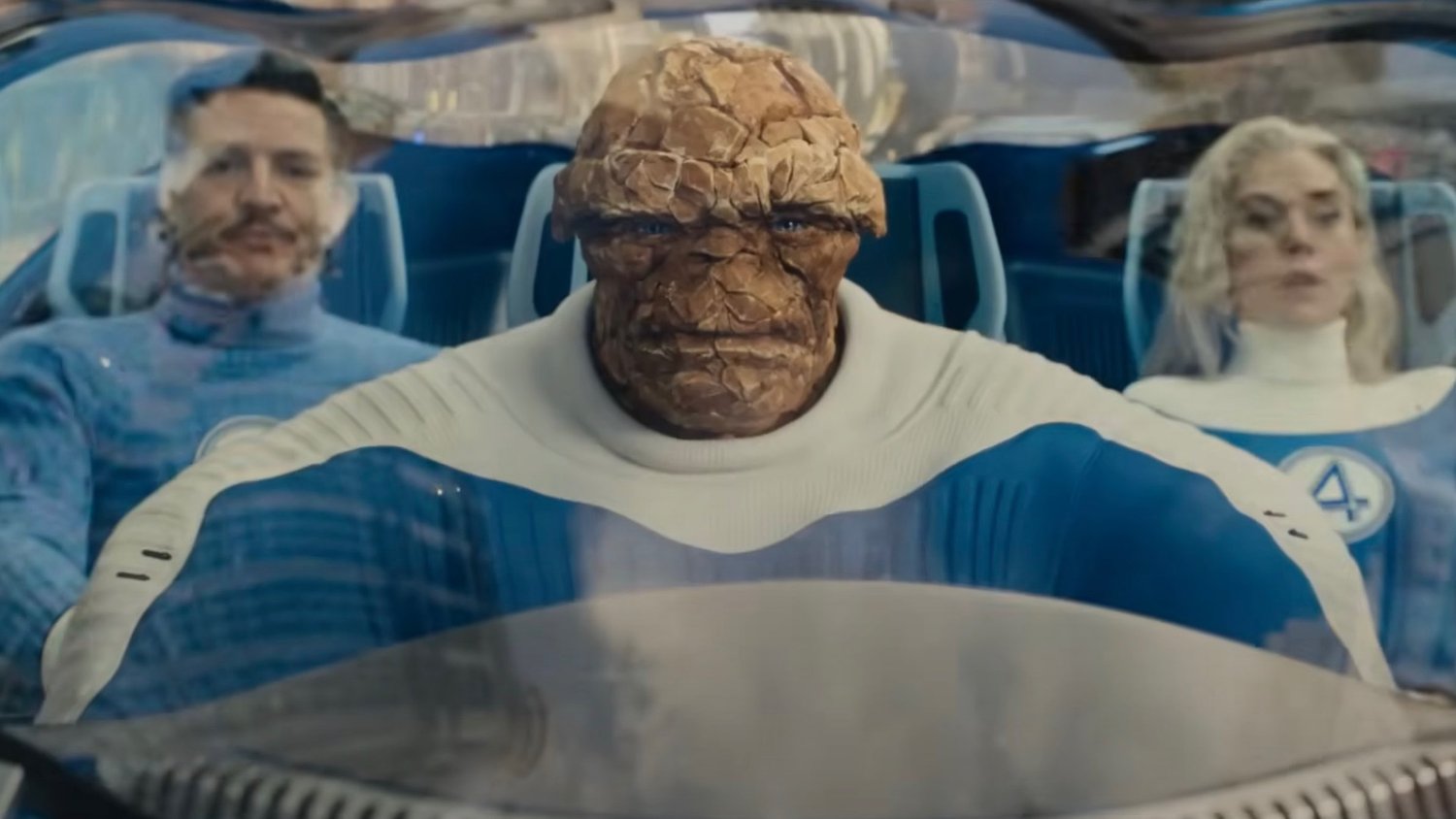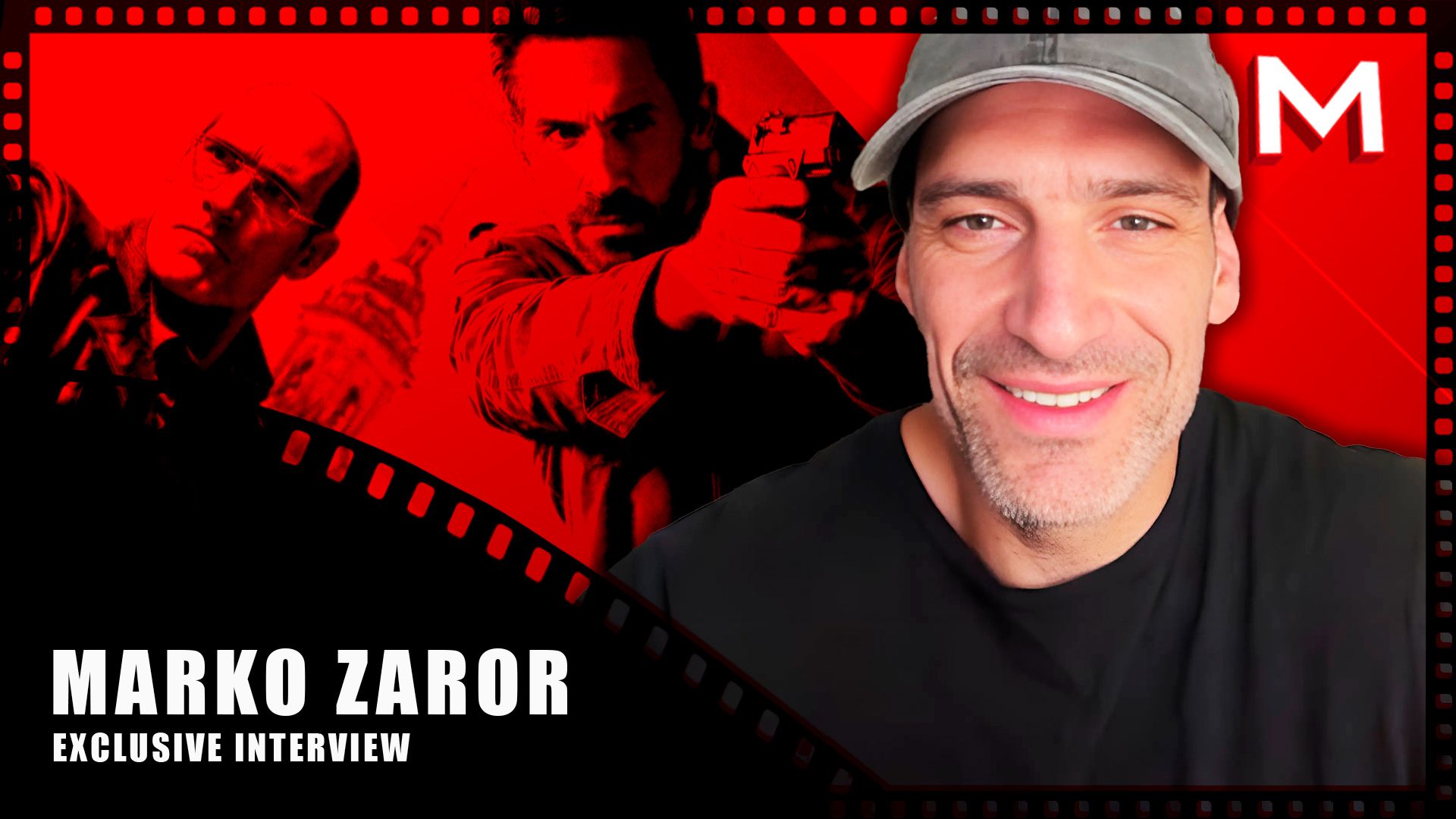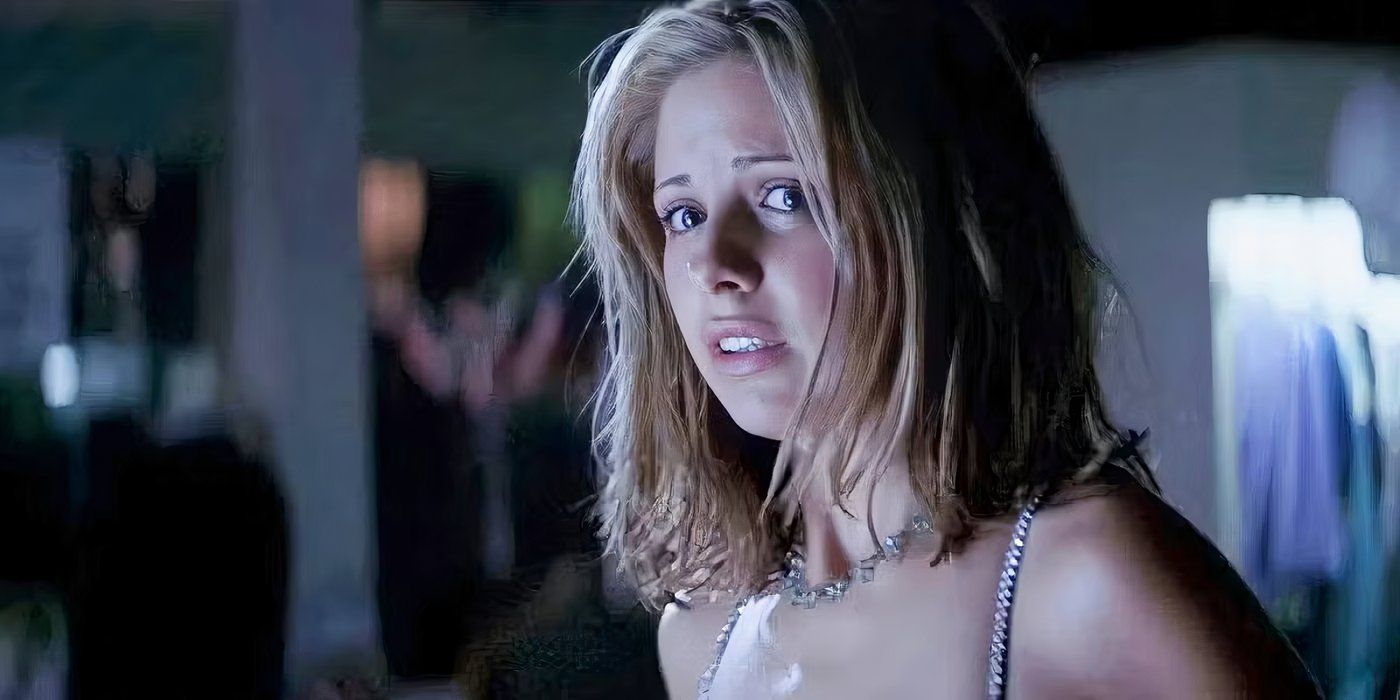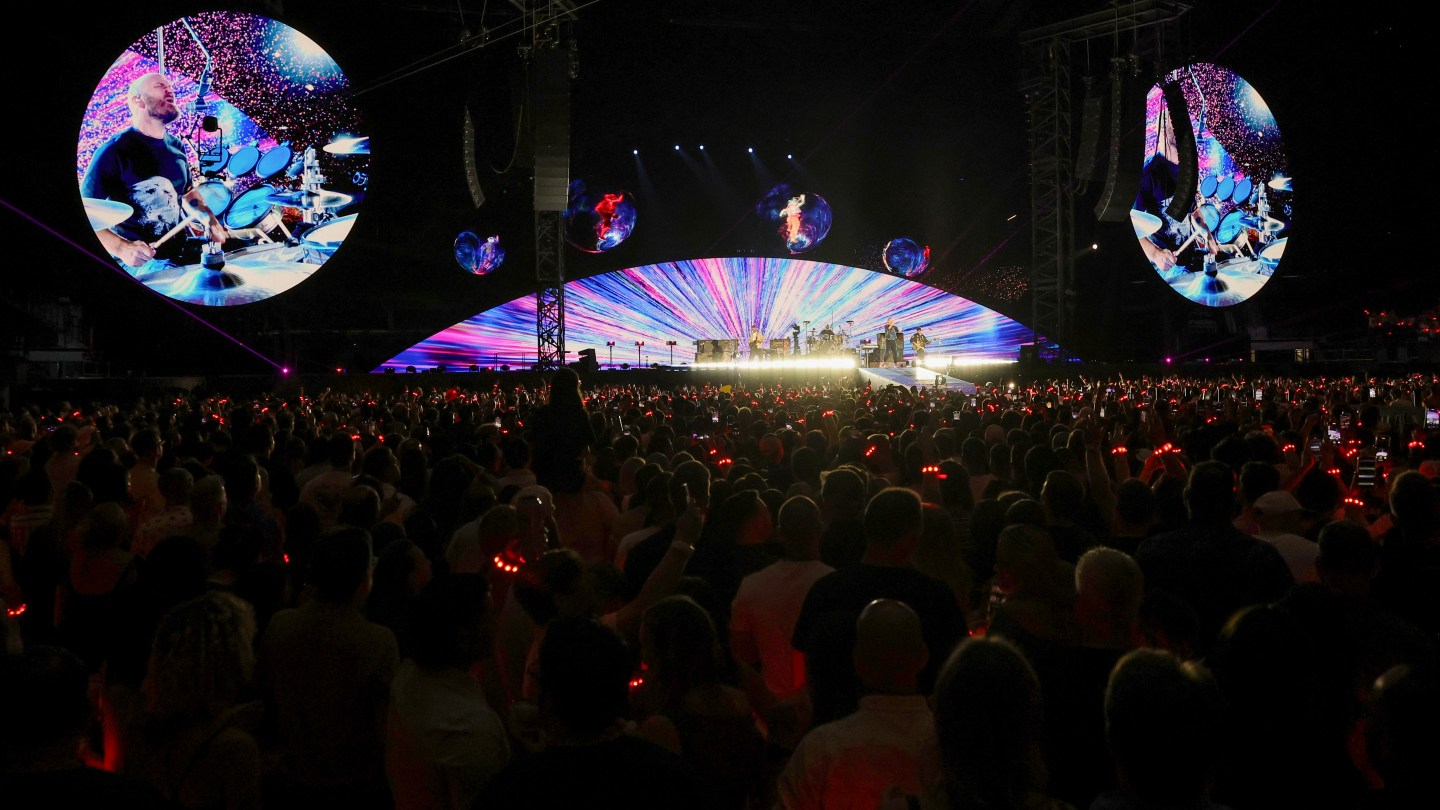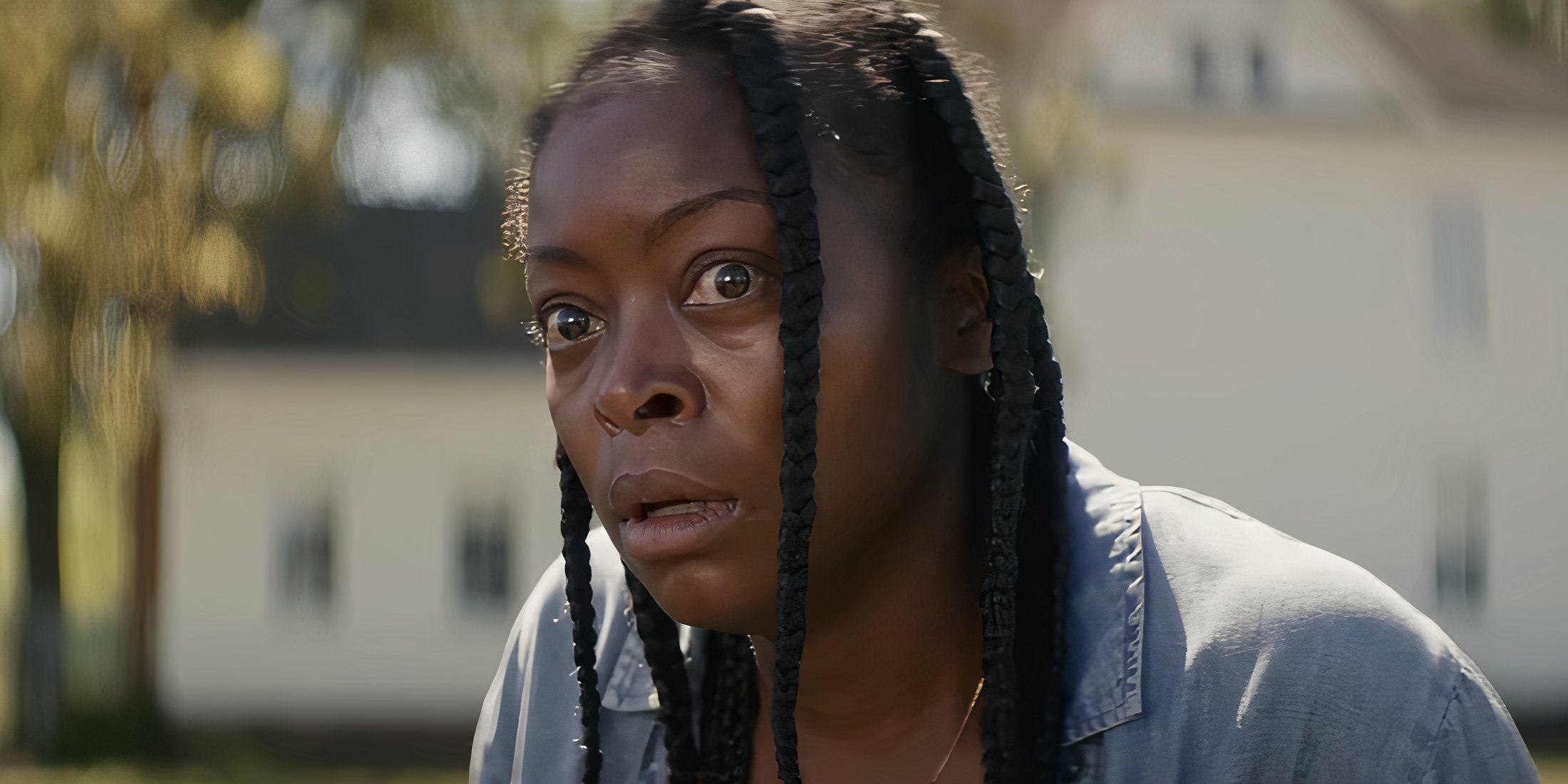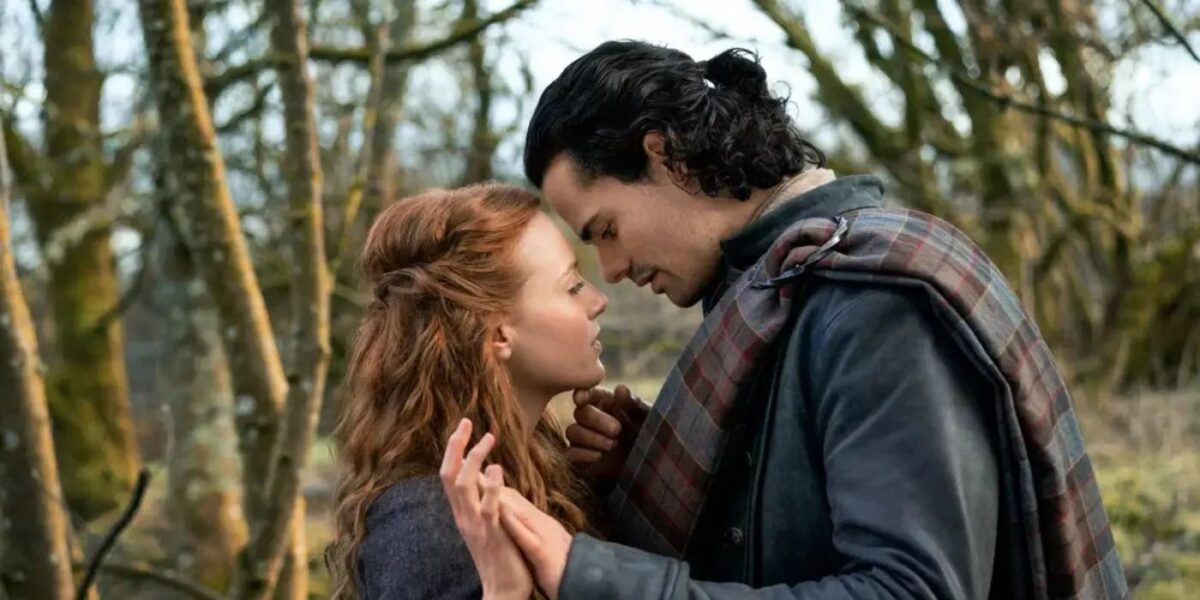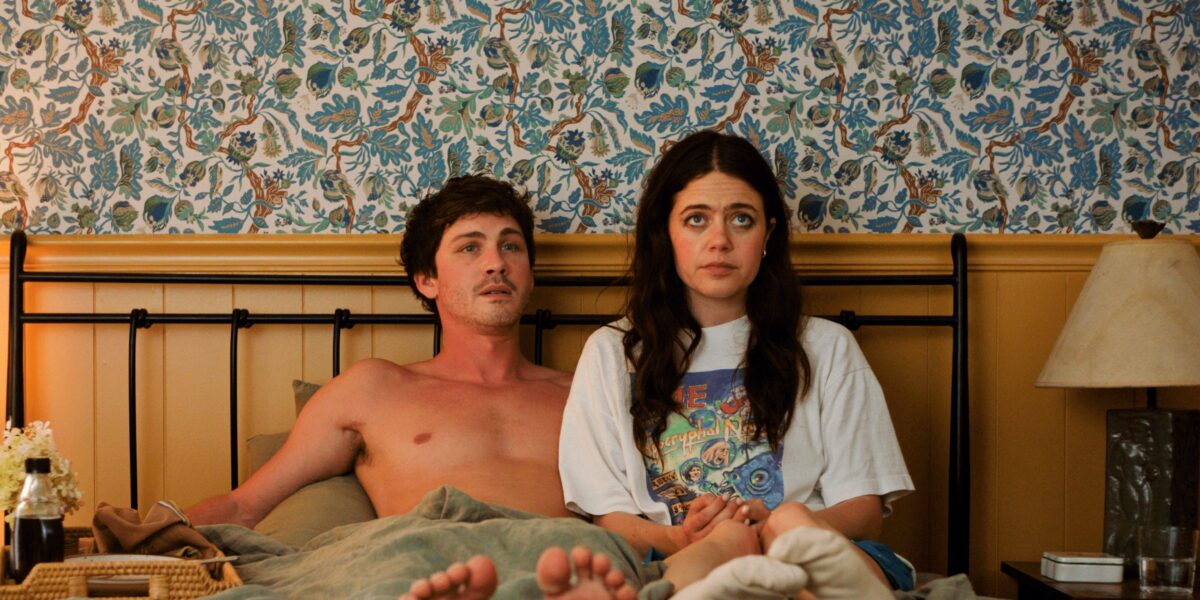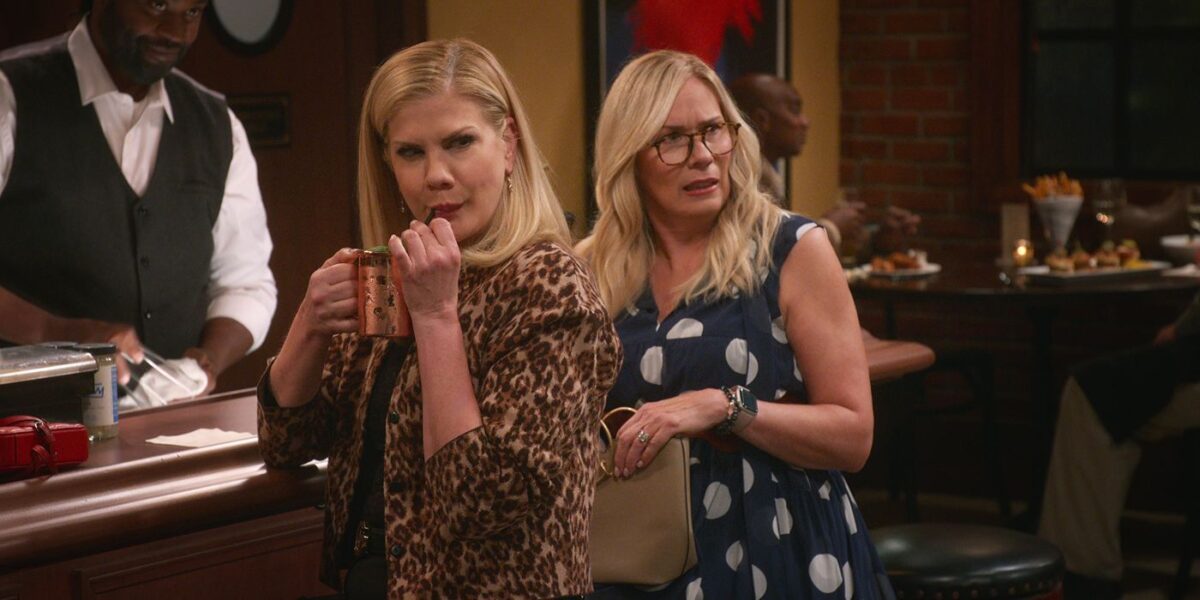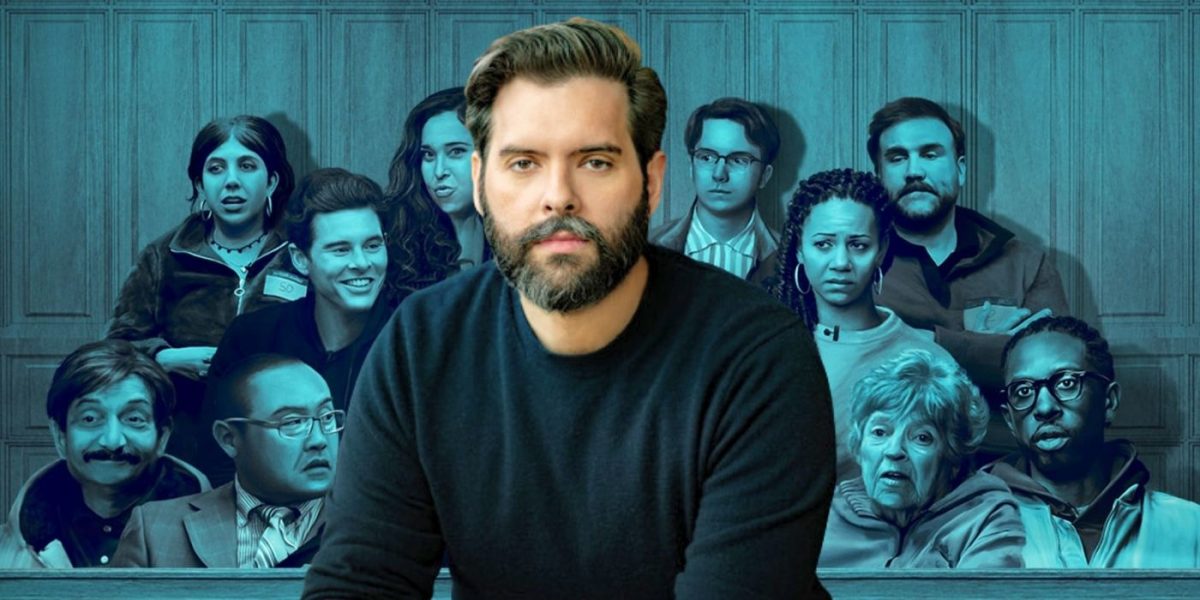
‘Jury Duty’ Producer on How Sacha Baron Cohen Prepared Him For Ronald Gladden
Aug 18, 2023
The Big Picture
Nicholas Hatton, producer of Jury Duty, discusses how his experience working on Borat helped prepare him for the show, requiring a high level of preparation and attention to detail. Hatton describes working on Jury Duty as pulling off a heist, where the stakes are high and everything needs to be carefully planned and executed to create a believable environment for the main character. James Marsden’s performance in Jury Duty is praised, with Hatton highlighting his star presence and ability to balance comedy with his Hollywood persona, as well as his understanding of the bigger picture and storyline of the show.
Nicholas Hatton is no stranger to producing unusual projects. He’s a frequent collaborator with Sacha Baron Cohen, after all, working with him on the Oscar-nominated Borat sequel as well as his Emmy-nominated series Who is America? Hatton is once again getting awards buzz for an untraditional series with Jury Duty. Nominated for four Emmys, including Outstanding Comedy, Jury Duty follows an unassuming (and extremely likable) man named Ronald Gladden as he goes through what he believes are normal jury duty proceedings. What he doesn’t know is the whole thing is a carefully calculated ruse, and everyone but him — from his fellow jurors to the witnesses to the extras at Margaritaville — are actors. Not only is the series hilarious, overflowing with wacky hijinks, but it’s surprisingly heartwarming as well.
Collider got a chance to speak to Hatton about how his experience working on Borat helped prepare him for the show, the James Marsden improv moment that had him in stitches, and why he likens producing the show to pulling off a heist.
COLLIDER: Congratulations on the show and the Emmy nominations. Pulling this off is an incredible feat in and of itself, and then adding that on top of it is so amazing. I went to the Jury Duty party at Comic-Con.
NICHOLAS HATTON: Oh, okay! You’ll have to let me know how that was.
It was amazing. I loved getting to take the quiz to see which juror I was most like. I got Ross.
That’s a good one!
Right? I was very happy with that. I’m curious about which juror you think you’re personally most like.
Oh, that is a question that I have not yet been asked and am not prepared for in any way, shape, or form, and it’s a really good one. Well, here’s the thing, I’m sure I’d most like to be Ronald, but I’m probably not. I’m maybe a bit Ross as well. If it was me, I probably would be gunning for foreperson because I like to organize folks — it’s just an annoying quirk that I have — so I probably would be in that battle in the second episode to try and see who would be a foreperson, and I would lose to Ronald. That’s where I’d come out, I think.
I think the whole world would lose to Ronald, honestly. I’m curious if there’s a certain juror or even character — all the witnesses were hilarious, too — other than Ronald that holds a special place in your heart.
That’s such a tough question. It’s kind of a pat answer for me to say like, “The whole cast was incredible.” But truly, this project only works when all of the ensemble completely sings in harmony together, and they have each other’s backs, and they trust each other. If any of them don’t give 100%, then the whole thing just doesn’t work. And that’s why I think this is such a special feat from a performer standpoint because they’re on camera for eight hours with no safety net, and they have a general sense of things they need to achieve during the day, and they have to maintain their alter egos. They have to maintain their fake personal histories that they’ve created in case Ronald asks any questions about them. They have to keep track of the fake histories that their fellow jurors have created when they’ve also gotten to know them as real people during rehearsals, and they can’t mix up that information. So for me, the whole cast, really. I have such affection for every single role. No role is less than any other, and I think they all bring just these wonderful spices and flavors to the funny sort of jambalaya that was created in that courthouse.
Obviously, you have a very unique history of the projects that you’ve done. I’m sure there’s no real way to prepare for something like this, but what was it about working on things like Borat that helped you?
It really helped because you approach it in a very similar way, which is you don’t approach it like you’re shooting a TV show or a movie — you kind of approach it like you’re trying to pull off a heist and you have that level of fear in your preparation. And therefore, that leads, I think, personally, to a level of robustness in the way that you approach the job and consider everything that you need to consider. Because if you elevate the stakes in your own mind to a very, very high degree, then you really start to think about every single thing that could make collapse and pull it apart.
Whereas, you don’t have those pressures if you’re doing a scripted show. If the prop in a scripted gag doesn’t feel completely right, or the weight of it is wrong, or the finish is slightly wrong, who cares? Because on camera, it looks fine, and the audience gets the joke. With this, if the prop doesn’t feel right, then our real person, Ronald, would be like, “Why does this feel this way? Why does it smell like this?” So when he’s going around the factory and stuff, all of those things had to be real and legit and right, and I think the all-or-nothing approach that is used to make things like Borat, we kind of had to apply to Jury Duty as well and have that same level of rigor and real close examination of everything that we did because we were creating an entirely fake controlled world for Ronald that we didn’t want him for a moment to believe was fake. So yeah, it gave me the best training possible to be able to pull this off.
Image via Amazon
Absolutely. I love the heist comparison. To me, it seems like it would be like a surprise party but also like a social experiment. Those are the comparisons I always imagined, but the heist makes so much sense.
I remember hearing — because, obviously, you know, Sacha [Baron Cohen] has been doing this stuff for decades now, and I started working with him producing on Who is America? and then on Borat — but I remember the first time it was described as the job I have being like a bank robber. And it’s just knowing where getaway exits are at all times, how to keep everyone safe, and to get the goal and get out of there. And that’s certainly the case when you’re doing a Sacha thing because you set up these very specific bits, and you bring in these people to try and get the funniest version you can, and then often you get out of there because it can be quite occasionally a hostile environment.
This was slightly different in that we can’t flee the scene. We had to control the scene and allow Ronald to keep coming back to it day after day after day after day. So that brought a different level of tension and nerves because it’s a bit like building the biggest Jenga block you possibly can and knowing that the higher it gets, the more fragile it gets, and the closer you are to ending shooting. It could all fall apart on the penultimate day, and then you don’t have a TV show. There’s a real sense of anxiety and tension that runs through the whole shoot.
I think that really shines through. One of the Jenga blocks that works so well for this is James Marsden. I’m really curious, what was it about him that put him in the running for this role? What made you think that he would be such a great fit for this?
Well, he’s a movie star, and I mean that in the most sort of generalized way possible — he looks like a movie star, he sounds like a movie star, he is a movie star. Everyone recognizes him from some big film or show or what have you. So he knew that he had a sort of star status, and most importantly, he was excited about what he could do with this because he didn’t have formal improv training, he didn’t do improv class after improv class after improv class. That wasn’t the way he came up. So for him, this was a new challenge and something he really wanted to push himself with. And because of that bravery, and because of his excitement, he was able to do some really extraordinary stuff. His performance, to me, is completely singular — the way he balanced this petty vanity with the Hollywood peacock guy whilst at the same time being so consistently funny.
Also, James is very, very savvy about what we need to get during a day. He’d always have that in the back of his mind. He wouldn’t just go off and do things because he’s having giggles doing it or he wants to be the center of attention — he was always very aware of how we needed to thread certain storylines together and how we had to build the fundamentals of the story and the role that he would have in that and guiding things along. He and the rest of the cast were so great at keeping in the back of their minds the bigger picture and how to put everything in the right place and how they had to take their moments to advance their storylines and were very selfless with each other in that respect as well. It was kind of amazing.
Image via Freevee
RELATED: ‘Jury Duty’ Showrunner Cody Heller on the Trials and Tribulations of Making the Emmy-Nominated Comedy Series
Yeah, that really is. I’m curious if you had to do a season two and find another actor to do something similar, who would you love to work with? And who do you think would sort of thrive like James did in this?
I really don’t know. I think there’s a temptation to maybe go with people who are known as being comic performers, but I think what was really fun about James is that he wasn’t necessarily known as a comic actor — he was more of a leading man type. And so the subversion for the viewers and being able to watch this guy really stretch his comedy muscles and really, to use a British expression, take the piss out of himself was kind of delightful and unexpected. It went against the grain. So I think you’d probably want to try and recapture some of that magic as best as you could if you were going to do it again and maybe go for someone unexpected who actually has a brilliantly defined comedy bone that you’re just not aware of. I think that’s probably the most delightful and surprising outcome, but who knows?
My coworker actually interviewed showrunner Cody Heller, and she mentioned that you had a really interesting fix if Ronald were to figure everything out, which is that you would work with him to try and turn the tables on the actors. Can you talk a little bit about how you came up with that idea? Because I think that’s really genius.
Well, in the darkest moments when you’re prepping this thing and you sort of work backward, you start with: What’s the moment that the whole show is building to? And, for us, it was in the seventh episode when Ronald is leading the deliberations, and the show is always designed around: What if you could take a real person through that 12 Angry Men kind of storyline and get them to a place where they are Henry Fonda, banging their fists on the table, standing up for what’s right and truthful when everyone else around them wants just wants to go home? Could you do that with a real person? So starting in that place, you kind of work everything you can to get to that point — you kind of work backward from there. And when you’re prepping, you start thinking about, “What happens if you keep failing with all of your story points? What happens if you’re not able to get these beats, which have been really quite thoroughly fleshed out during the writing process?” Because again, this was a written show, but obviously, it was heavily improvised. And yeah, in the dark hours of the night, I’m thinking about, “What if Ronald turns left when he should have turned right or we forget a very important detail and it completely unravels the whole show?”
With most scripted shows, even if, as you’re making it, it’s not very good — maybe the writing isn’t quite what you thought it was, maybe the performers aren’t quite right, maybe the director…whatever — maybe it’s just collectively a bit disappointing as you’re making the thing, as long as you shoot all the pages and come in roughly around the budget and do it on schedule, hey, at the end of the day, at least you can hand over a not-very-good TV show, but everyone tried their best with this. There might be a world where, as I was thinking about this during prep, we don’t have a TV show to hand over. And it’s like, “Sorry, you’ve been very, very kind in trusting us and believing that we could do this, but the story completely failed, we weren’t able to do it, and you’ve now spent millions of dollars.
So in those dark moments, I was like, “Is there any way you can save the whole thing if he finds out?” And yeah, there was one thing, which was, if he finds out and if the other actors aren’t aware that he’s found out, then we would have a private conversation with him and we would just change the rules of the game. Instead of making it about everyone else acting around this and this person who’s unaware, just turn the tables completely and fill him in on everything. Hopefully, he’s cool with it — doesn’t lose his mind or get very upset and angry and storm offset, which would be his right to do so. Hopefully, he understands it’s a bit of fun and the spirit with which we intended this thing to be made, which was to make him have a great experience. And then, hopefully, he would go along with us, and then we would make him essentially progressively more and more difficult and manic around the actors as they try and scramble to keep everything on track.
The only downside of that would be a terrible betrayal of the trust of all the actors, and we would be quite aggressively lying to them over an extended period of time. So I am happy that we didn’t have to do that, at the end of the day. But I will say this: During the rehearsals, there was a rumor going around our jurors that this was the show — that during rehearsals, we were watching them trying to figure out what the hell this show was, what was expected of them in this thing that had never been done before, and the real show was watching a bunch of actors flounder around, figure out how to pull this thing off, and we laugh at them at the end of the day. That, of course, was not the case, but that was the level of paranoia and suspicion that was going around when we started rehearsing this process.
Image via Freevee
I love it. That’s so meta.
It was crazy.
A little bit crueler, but I would be down to watch that, too. Another thing that Cody told my coworker was that she wanted people who were writers and performers working on the show so that the people in the writers’ room could then go and be performers on set some of the time. Why was that something that was important to you all as you were putting this together?
Because they would have sort of the institutional knowledge from the writers’ room of all the stuff that we were trying to achieve in the show. And again, remember, we did come out of the writers’ room having seven narrative episodes — the spine of seven narrative episodes — that we wanted to achieve, and we felt like could create these really satisfying storylines that the audiences would be invested in. Not just this crazy premise, but they’d actually fall in love with the characters and see where they go and the will they/won’t they of Noah and Jeannie — all that kind of stuff we wanted to see come to light.
So the reason we really liked the idea of having some of our — as many of our — writers as possible being there is that it’s a live show, and it’s being created on the fly. You want to have them in the space as much as possible to be able to sort of guide things where they need to go or take a new bit of information and, on the fly, figure out how to fit that into a narrative that we want to show onscreen. So it’s just basically, essentially, being able to really write on the fly and help us from a production standpoint — keep these narrative threads together as we designed them. And it ended up working out really well. We were able to get a lot of our writers in there, and they ended up being fantastic performers as well. Again, it was a bunch of people who were really invested in the outcome, and I find that when you have people who really care about what it is that they’re doing, the work tends to be better.
Obviously, a lot of it, like you said, was scripted and planned out. But is there an improv moment that surprised you the most or that you found the most unexpected and funniest?
You know one that really caught me off guard? And it was funny because I hadn’t seen it in the control room because, as we’re shooting this, essentially it’s Jake Szymanski, our director, at a bank of monitors in the control room, which is this hidden room that no one’s allowed to come into whilst the set is live. And I’m next to him, and then I have Cody Heller and Andrew Weinberg to our left, and we’re all staring at everything and folks and trying to read and react as the day goes on. And you don’t necessarily catch every single thing because there are like bloody 20 camera feeds going on and also a hell of a lot of mics picking up different conversations. You can’t listen to them all at once, so you’re kind of selectively scanning around these different things as they’re going on in the edit.
When I first saw one of the episodes, one of the rough assemblies for one of the episodes, it’s when James is an alternate juror. He’s the only alternate juror, so he’s alone by himself in the gallery, and you cut to him, and he’s drawing a naked picture of Jacquiline. No one had told him to do this. He hadn’t said he was gonna do it. It was something that he was literally doing to keep himself entertained in character like a dickish, somewhat misogynistic objectification of a woman. And the drawing itself was very funny. It’s definitely a cartoonish funny drawing. It was completely unexpected. Again, he’s so savvy — he just knows where cameras are, and he was always aware, even our hidden ones, and he just had the perfect angle for it. That’s only a small thing, but I belly laughed when I saw it because he’s just constantly thinking of ways to inject jokes and humor into it. That one is a small moment, but it really, really made me laugh, and it was kind of the charm of the show of these folks being able to find their own moments to do all these things.
Image via Freevee
You mentioned the editing, which I feel really brings this show to the next level with the timing and the footage that was selected. I’m sure that was just an enormous feat. Can you give me an idea of what that process looked like? How you approached that with your editors?
The editors did a fantastic job. Even with my experience in this arena, what we were doing here specifically was novel and unique in terms of, you have all this footage, which is a mixture of what feels like documentary-style footage — your Christopher Guest or your The Office — but there’s also an element of hidden camera and stuff that we needed to employ, which felt really very truthfully documentary. There are lots of clashing conversations going on at all times, so it’s almost like a Robert Altman thing going on, too.
And there are lots of different ways you can go with this once you have all this incredible raw material. And truthfully, during the editing process, we tried a lot of different things. There was a version of the show that we cut, which didn’t declare up front what the premise of the show was. We just cut episodes together — which felt kind of Parks and Rec, like Christopher Guest — and then, in the seventh episode, when the truth is revealed to Ronald, that truth will also be revealed to the audience at the same time. And the thinking was, if we can pull this off, we can make a really great, funny, seemingly scripted show. And then you find out in the last moment that, by the way, the whole thing has essentially been a ruse and this insane social experiment. Wouldn’t that be mind-blowing? And we tried that, and it just wasn’t as fun because you just wanted the audience to get on board straight away with the premise.
And really, we felt like it was such an effective hook into this new way of experiencing something which felt visually familiar — the show looks and feels a lot like those great mockumentary-style shows from Parks and Rec, The Office, Christopher Guest, whatever. It has a lot of that visual language and tone and feeling and warmth. And we just wanted to be able to surprise people and have an intriguing hook, so the earlier we could bring the premise, the quicker it allowed people to settle in and enjoy this crazy thing and go along for the ride.
So yeah, the editing process was very exploratory. We knew the storylines we wanted to show, we knew what we had there, but in the way that we presented the show, the feel of the show, the kind of the packaging of it, and the tone and stuff — that took a lot of exploration during the edit. But I’m very thankful to the team we had who were able to pull it together. And we try things — some stuff failed, and then some stuff worked better than we could have possibly imagined. And ultimately, the proof is in the pudding. Folks have really responded incredibly well to the show, and that’s a testament to all the work our post team put into it.
Jury Duty is available to stream on Amazon Freevee.
Publisher: Source link
Starz’s Steamy, Emotional Prequel Series Changes Everything You Knew About Jamie and Claire’s Love Story
With the end of Starz's epic adaptation of Outlander looming, the initial expectation might not have been that there was more story to tell — but fittingly, showrunner Matthew B. Roberts has gone back to the past as a way…
Aug 3, 2025
Seth Rogen’s Rom-Com-ish Apple TV+ Show Continues To Be A Good Hang
The second Apple TV+ series released this year that features Seth Rogen, “Platonic” season two definitely isn’t going to get the amount of insidery raves and Emmy nominations that “The Studio” received. Yet, after a first season that began a…
Aug 3, 2025
Sophie Brooks’ Attention-Grabbing Premise Beats The Discourse, Even With Shaky Execution
This age of modern dating, and its myriad uncomfortable situations and odd terms, has already spawned a number of movies aimed at capturing the difficulties of finding love today. Whether it's covering the strangeness of social media or the concept…
Aug 2, 2025
Leanne Morgan and Chuck Lorre’s Charming, Relatable Netflix Sitcom Will Have You Laughing Out Loud
With humble beginnings in booking comedy gigs and putting out comedy specials on YouTube, Leanne Morgan steadily climbed her way onto Netflix, where she released her stand-up special Leanne Morgan: I'm Every Woman in 2023. This year, she tried her…
Aug 2, 2025
